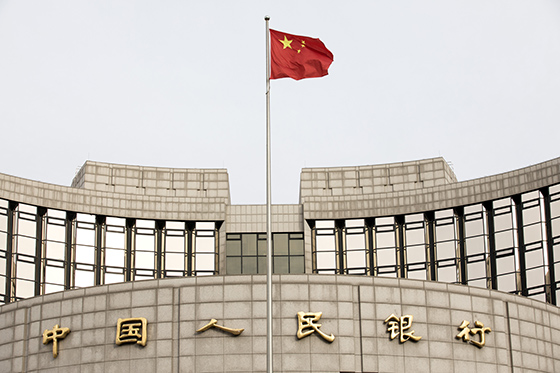中国的金融科技革命方兴未艾

|
8月初,我们深入探究了中国金融科技产业的现状,这也是今年早些时候《财富》杂志首届头脑风暴金融大会上某次早餐圆桌会的主题。 那天早上的会议中,我们的特邀演讲者早早就在一个问题上达成了共识:在金融科技领域,中国比全球任何国家都要先进得多。区块链投资公司Proof of Capital的执行合伙人杨佩珊表示:“如果你想看看金融科技的未来,去中国就能看到。”她表示,阿里巴巴的子公司蚂蚁金服和腾讯的微信是数字银行和数字支付的典范。 中国金融科技初创企业品钛的总裁周静解释称,中国金融科技产业的崛起依赖于软件应用和手机的普及。“过去,人们没有智能手机,如果住得很远,就无法获得在美国随时可用的信息或服务。”周静说。 “今天,不用在当地开银行分行,就可以接触到住在西藏和你从未听说过的遥远地区的客户。” 周静继续说道,“只需花费非常少的甚至接近于零的成本,你就可以向中国大多数人提供零售金融产品。” 另一家中国金融科技初创企业融360的首席执行官、董事长及联合创始人叶大清谈到了在这样一个新市场中经营所面临的一些挑战。他说,让新买家和卖家彼此信任并不容易。 融360面临着为掠夺性借贷机构提供网贷平台的争议,叶大清在回答相关问题时表示,公司一直在正面处理这个问题。“我们有责任确保平台上产品的可靠性——他们必须遵守相关规章制度。”他还表示,公司一直在“收紧”市场。 叶大清还强调了消费者教育的重要性。“记住,对于许多中国消费者来说,这是他们人生中第一次用信用卡,或者是第一次购买保险。我们需要帮助人们理解什么是复利,什么是APR”,APR指的贷款年利率,也就是贷款需要支付的利息。他说:“我们正在与金融服务提供商合作,确保他们良好守信,不会进行诱骗式的营销。” 由于中国的消费者基础不断壮大,而且前进的道路上几乎没有什么根深蒂固的阻碍,中国一直在技术上实现跨越式发展。中国一直在试验新的理念,比如受到争议的社会信用体系——该体系根据人们的行为进行评级,并根据评级限制或允许他们获得服务。中国最近即将取得的成就是:央行在8月12日表示,经过五年的发展,它“差不多准备好”发行自己的数字货币。 中国币能否代表金融科技的前沿?我们要等有更多的细节才能回答这个问题。但是,正如杨佩珊在会上的小组讨论中所言,中国政府对区块链技术的兴趣,似乎是出于对金钱的吸收和控制;它不像众多加密货币支持者那样那么关心去中心化的愿景。 “我非常看好中国。”杨佩珊表示。(财富中文网) 译者:Agatha |
We discussed the roiling Sino-American trade war and the shock depreciation of China’s currency at the beginning of August. Today we’re going to take a deeper look at the status of the financial technology industry, or fintech, within China, which was the subject of a breakfast roundtable Fortune hosted at its inaugural Brainstorm Finance conference earlier this year. Early on during that morning session, our featured speakers found a point of agreement: the Middle Kingdom is far more advanced than just about any other nation when it comes to financial tech. “If you want to see the future of fintech, just go to China,” said Edith Yeung, managing partner of Proof of Capital, a blockchain-focused investment firm. She cited Alibaba-spinoff Ant Financial and Tencent’s WeChat as paragons of digital banking and payments. Zhou Jing, president of Pintec, a Chinese fintech startup, explained the Chinese industry’s rise as hinging on the proliferation of software applications and mobile phones. “In the past people didn’t have smartphones and they didn’t have access, if they lived far away, to information or services that are readily available in the U.S.,” Zhou said. “Today, without opening a bank branch you can reach out to customers who live in Tibet and faraway places you’ve never heard of,” Zhou continued. “You can provide retail financial products to the majority of the population in China at marginal cost, or close to zero.” Daqing “David” Ye, CEO, chairman, and cofounder of Rong360, another Chinese fintech startup, discussed some of the challenges that attend operating in such a new market. It’s not simple to get new buyers and sellers to trust one another, he said. Responding to a question about a controversy over Rong360 hosting predatory lenders on its loan-originating marketplace, Ye said his company has been tackling the issue head-on. “We have the responsibility to ensure the accountability of products on our platform—they have to obey the rules and regulations,” he said, noting that the company had been “tightening up” its market. Ye also highlighted the importance of consumer education. “Keep in mind, for many Chinese consumers, this is the first time in their whole lives they want to use credit or buy insurance. We need to help people understand what’s a compound interest rate, what is APR,” or annual percentage rate, meaning the interest due on loans. “We’re working with financial service providers to make sure they follow good, best practices and can’t do bait-and-switch marketing,” he said. With a surging consumer base and little entrenched infrastructure to stand in the way, China has been leapfrogging ahead technologically. The country has been experimenting with new ideas, such as its controversial social credit system, which grades people based on their behavior and either restricts or green-lights their access to services. The latest impending achievement: On August 12, China’s central bank said it was “almost ready” to release a digital currency of its own after five years of development. Will China-coin represent the leading edge of finance? We’ll have to wait for more details to find out. But, as Yeung pointed out during the panel discussion, the Chinese government’s interest in blockchain technology appears to be driven by a desire to co-opt and control money; it cares less about the vision of decentralization promoted by so many cryptocurrency boosters. “I’m very bullish on China,” Yeung said. |











